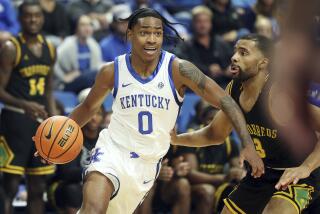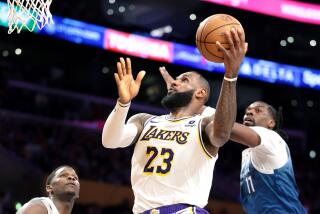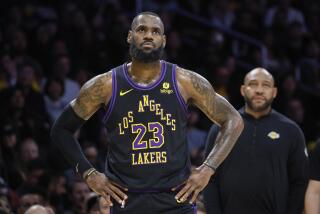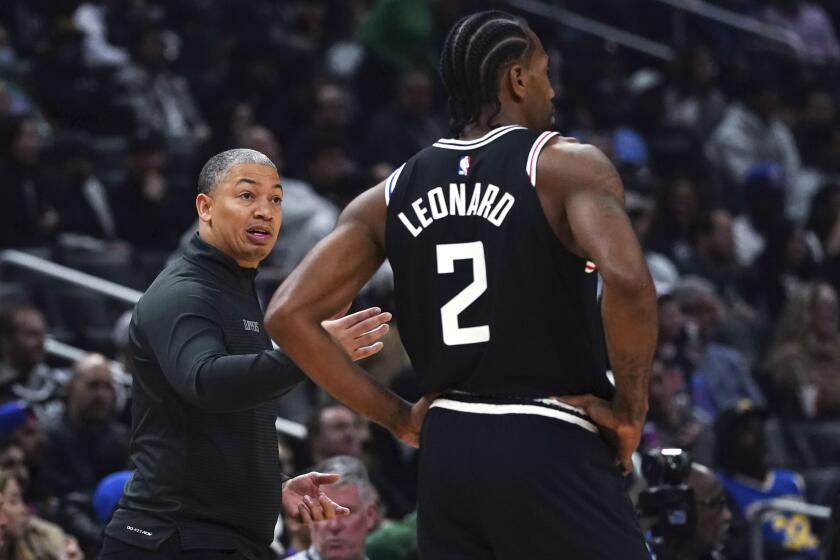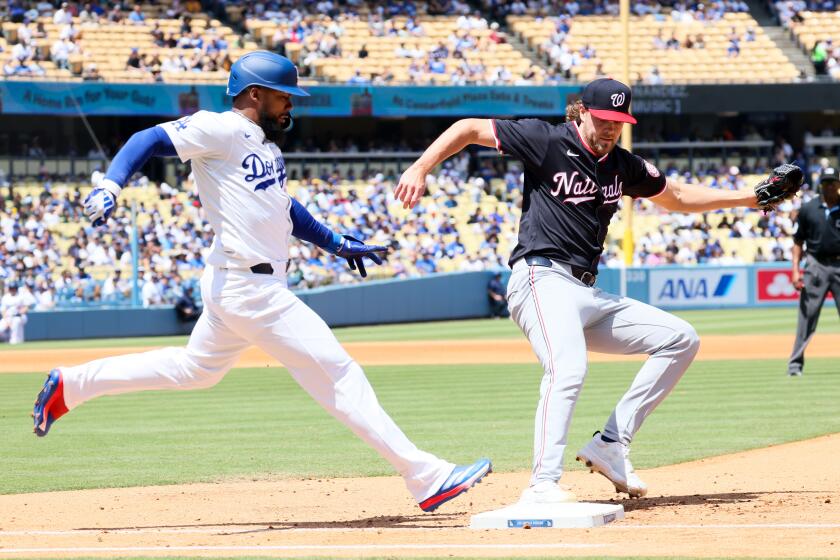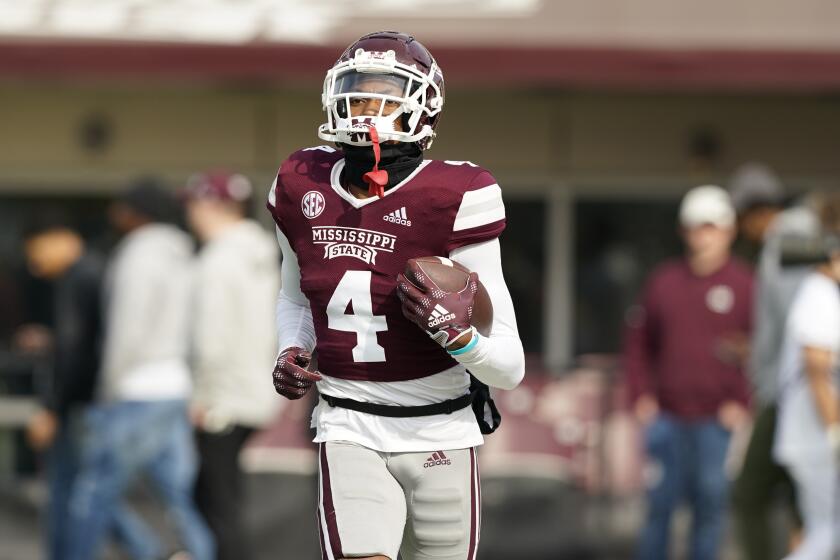For Lakers, No. 2 pick means a little less choice, a lot less pressure
Choice can be a good thing. It is why Kobe Bryant avails himself of both a car and a helicopter for his commute, why Nick Young owns 500 pairs of sneakers and why vending machines offer more than one snack.
But consider the NBA executive entrusted with the No. 1 draft pick. There, choice can be dangerous. Often, the decision can make or break the team and the executive’s career.
The Lakers weren’t lucky enough to land this year’s No. 1 pick, but at No. 2 they are still in an enviable position. That’s because most reporters who cover the NBA say the Lakers will not have to make a choice at all. The Minnesota Timberwolves will almost certainly select either Duke’s Jahlil Okafor or Kentucky’s Karl-Anthony Towns, and most assume the Lakers will take the other.
For obvious reasons, the top spot is the most tactically advantageous pick. But for a basketball executive, not to mention for a fan base’s psychological well-being, this year’s No. 2 pick is the most comfortable.
“If I were the Lakers, I’d rather have the ability to choose myself and rather have the No. 1 pick,” said Larry Coon, an NBA analyst and salary cap expert. But, he said, “If you draft a guy and he turns out to be a bust, it’s your neck on the line. Even if 100% of the reporters and everyone else were saying that your guy was the consensus, easy No. 1 pick, you’re still the guy getting fired for it.”
Coon said the dynamic is in play during a draft such as this year’s, when little apparently separates the two players at the top. The Timberwolves, of course, won’t be scrambling to trade down, but the Lakers benefit in a few ways by picking second.
The Lakers receive roughly a $500,000 discount for whomever they draft at No. 2. That’s not significant for the team right now, but it is a boon over the life of what could end up being a nine-year agreement, with options and extensions.
And the pressure will be off. That means less pain should the pick be a dud.
In 2007, the Portland Trail Blazers with the No. 1 pick selected Greg Oden over Kevin Durant, both highly touted options.
When Oden fizzled out because of injuries, Portland general manager Kevin Pritchard was fired. Sam Presti, the Seattle Supersonics’ general manager who drafted Durant at No. 2, earned an extension.
“The irony of course is if Seattle had one and Portland had two, Seattle was probably going to take Oden,” said ESPN basketball analyst and former Phoenix Suns front office member Amin Elhassan.
Elhassan reasoned that given Presti’s background with the San Antonio Spurs, who built their team around big men, Oden would have been difficult to pass up.
The next year, there was again a debate at the top, this time between Derrick Rose and Michael Beasley. Rose went first and became an MVP with Chicago and Beasley lagged behind. But Miami Heat president Pat Riley, who picked Beasley second, avoided scrutiny.
Psychologist Barry Schwartz, in his book “The Paradox of Choice: Why More Is Less,” explained more options often bring more anxiety and regret.
“Americans have more choice than any group of people ever has before,” he wrote. He concluded, “We don’t seem to be benefiting from it psychologically.”
The Lakers can always find regret with the No. 2 pick, as Trail Blazers fans can attest. In 1984, Portland used its No. 2 pick on Sam Bowie, right after Hakeem Olajuwon and right before Michael Jordan.
Former Chicago Bulls general manager Rod Thorn, who drafted Jordan, acknowledged he was lucky to avoid the top choice. “I wish I could say I were prescient enough to know he was going to turn out to be as good as he was,” Thorn said of Jordan.
It’s not likely, but the Lakers could end up with a decision to make anyway. Some reporters have speculated the top choice could refuse to play for Minnesota if he prefers the Lakers’ prestige and profile, and demand a trade.
Such a maneuver would effectively give the Lakers the decision. It would be a nice choice to have.
And fairly easy to get wrong too.
More to Read
Get our high school sports newsletter
Prep Rally is devoted to the SoCal high school sports experience, bringing you scores, stories and a behind-the-scenes look at what makes prep sports so popular.
You may occasionally receive promotional content from the Los Angeles Times.
